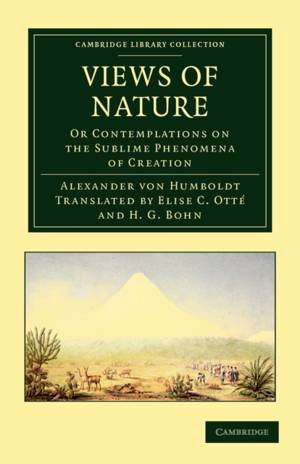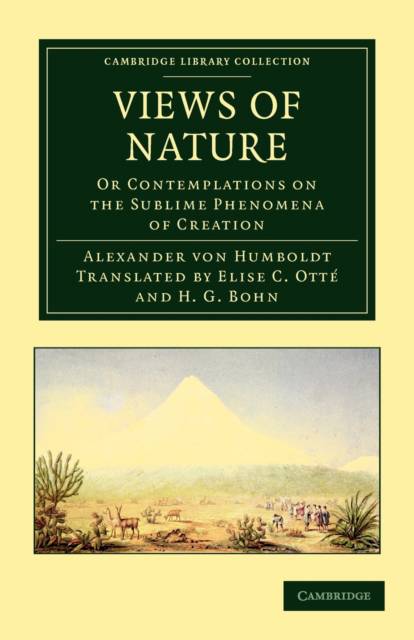
- Afhalen na 1 uur in een winkel met voorraad
- Gratis thuislevering in België vanaf € 30
- Ruim aanbod met 7 miljoen producten
- Afhalen na 1 uur in een winkel met voorraad
- Gratis thuislevering in België vanaf € 30
- Ruim aanbod met 7 miljoen producten
Zoeken
€ 107,95
+ 215 punten
Uitvoering
Omschrijving
Alexander von Humboldt (1769-1859) was an intellectual giant: an explorer who helped lay the foundations of biogeography, a naturalist who influenced Charles Darwin, and a botanist who developed a model of the Earth's climate zones. He travelled extensively in Europe, carried out scientific explorations across the Russian Empire and in Latin America, and devoted much energy to seeking a unified view of the different branches of scientific knowledge. Ansichten der Natur, published in 1808 with a second edition in 1826, aimed to 'engage the imagination' as well as to communicate new ideas, and was translated into many European languages. This authorised translation of the third and final 1849 edition, dating from Humboldt's eightieth year, was published in 1850, though another English translation (by Mrs Sabine) had appeared the previous year. The wide coverage, including geology, geography and biology, is typical of Humboldt, as is the precise and engaging style.
Specificaties
Betrokkenen
- Auteur(s):
- Vertaler(s):
- Uitgeverij:
Inhoud
- Aantal bladzijden:
- 490
- Taal:
- Engels
- Reeks:
Eigenschappen
- Productcode (EAN):
- 9781108037358
- Verschijningsdatum:
- 8/12/2011
- Uitvoering:
- Paperback
- Formaat:
- Trade paperback (VS)
- Afmetingen:
- 140 mm x 216 mm
- Gewicht:
- 616 g

Alleen bij Standaard Boekhandel
+ 215 punten op je klantenkaart van Standaard Boekhandel
Beoordelingen
We publiceren alleen reviews die voldoen aan de voorwaarden voor reviews. Bekijk onze voorwaarden voor reviews.











